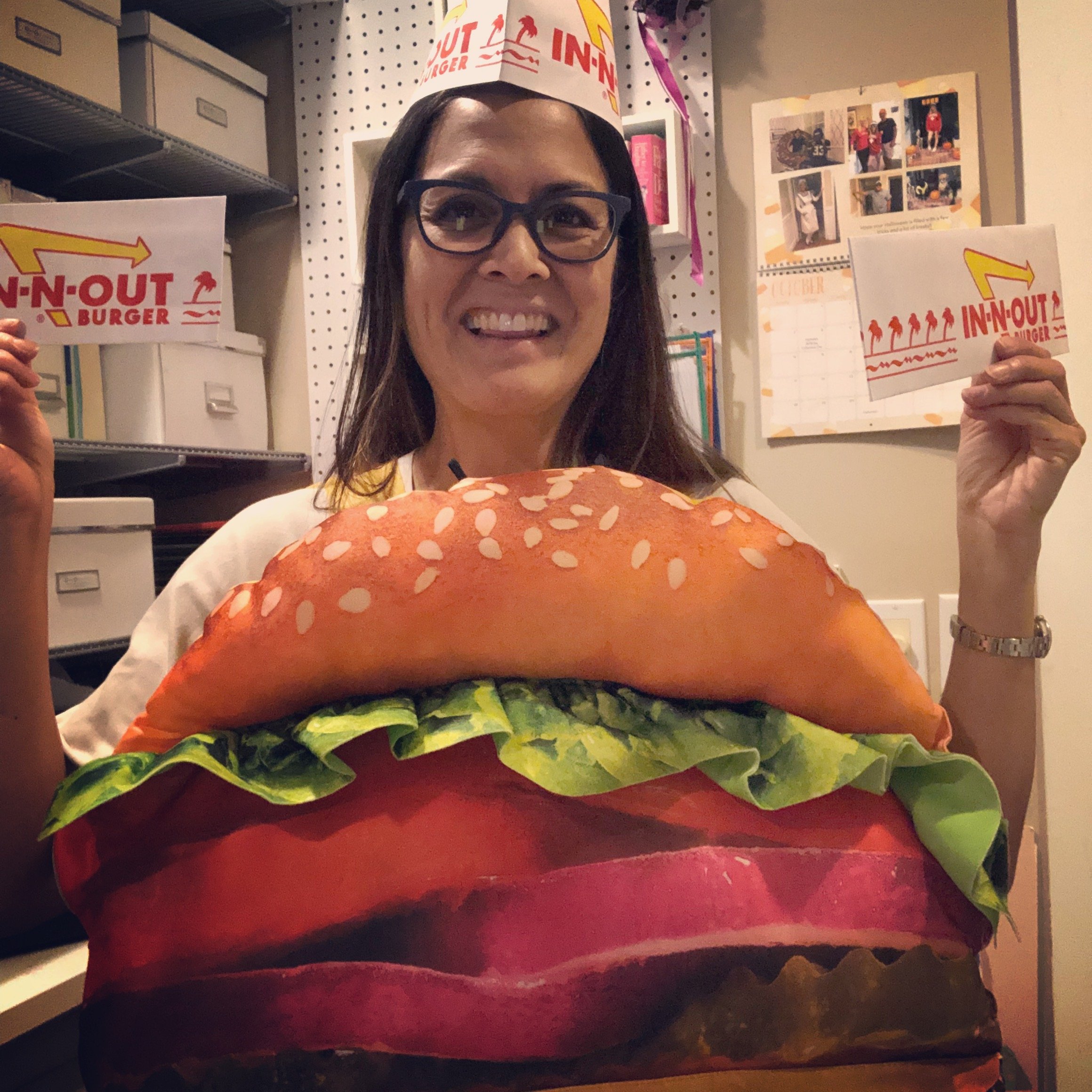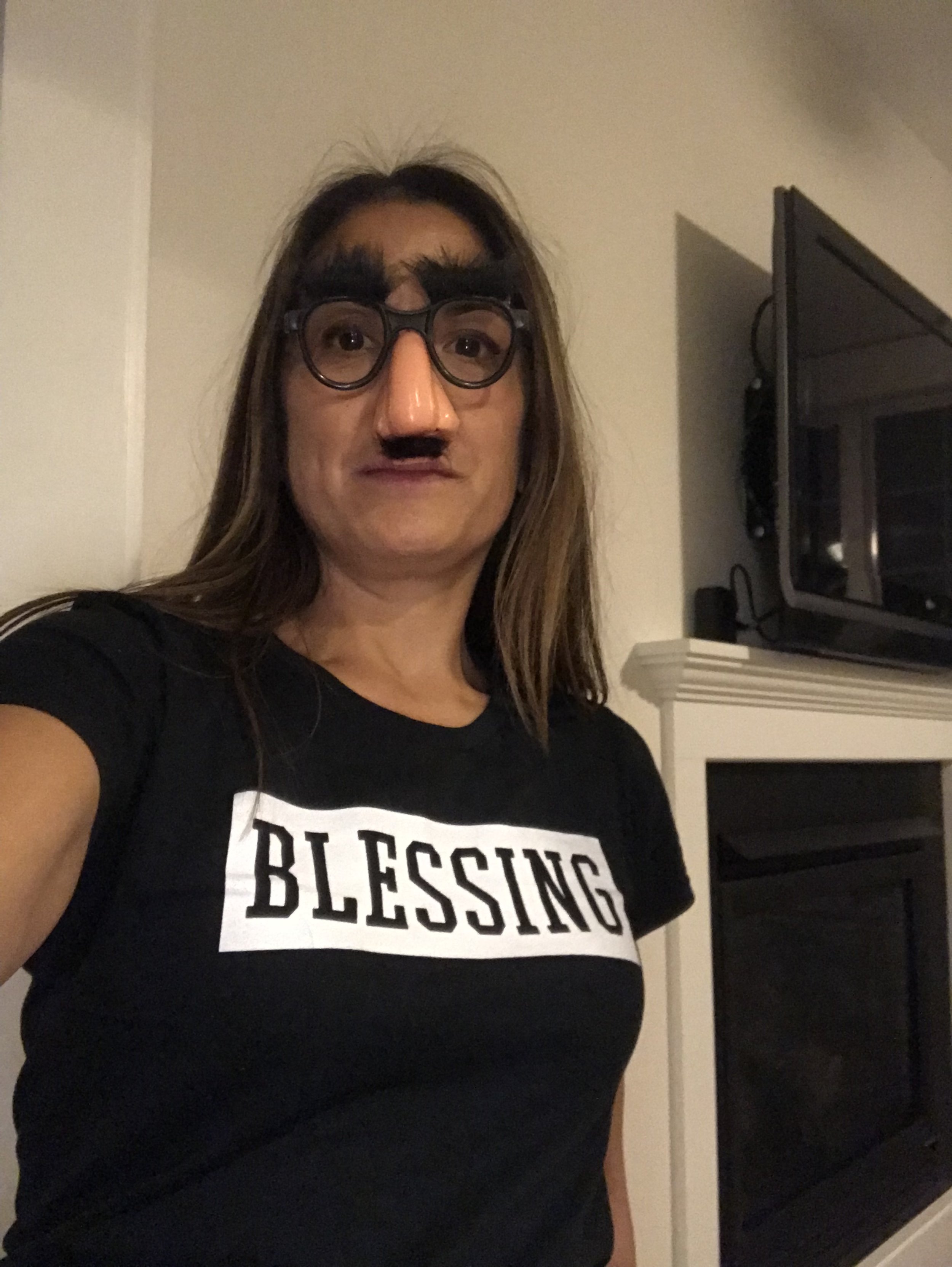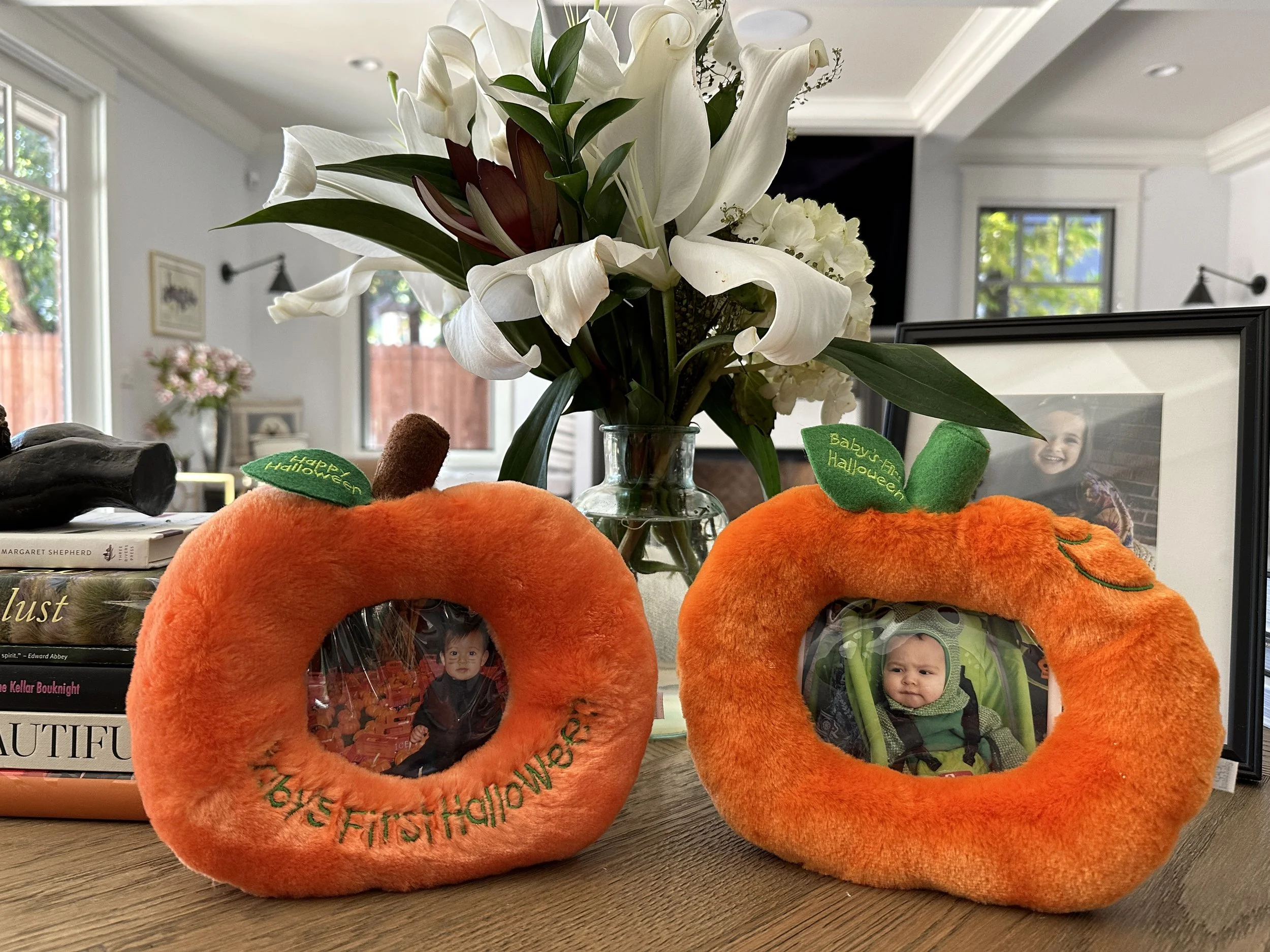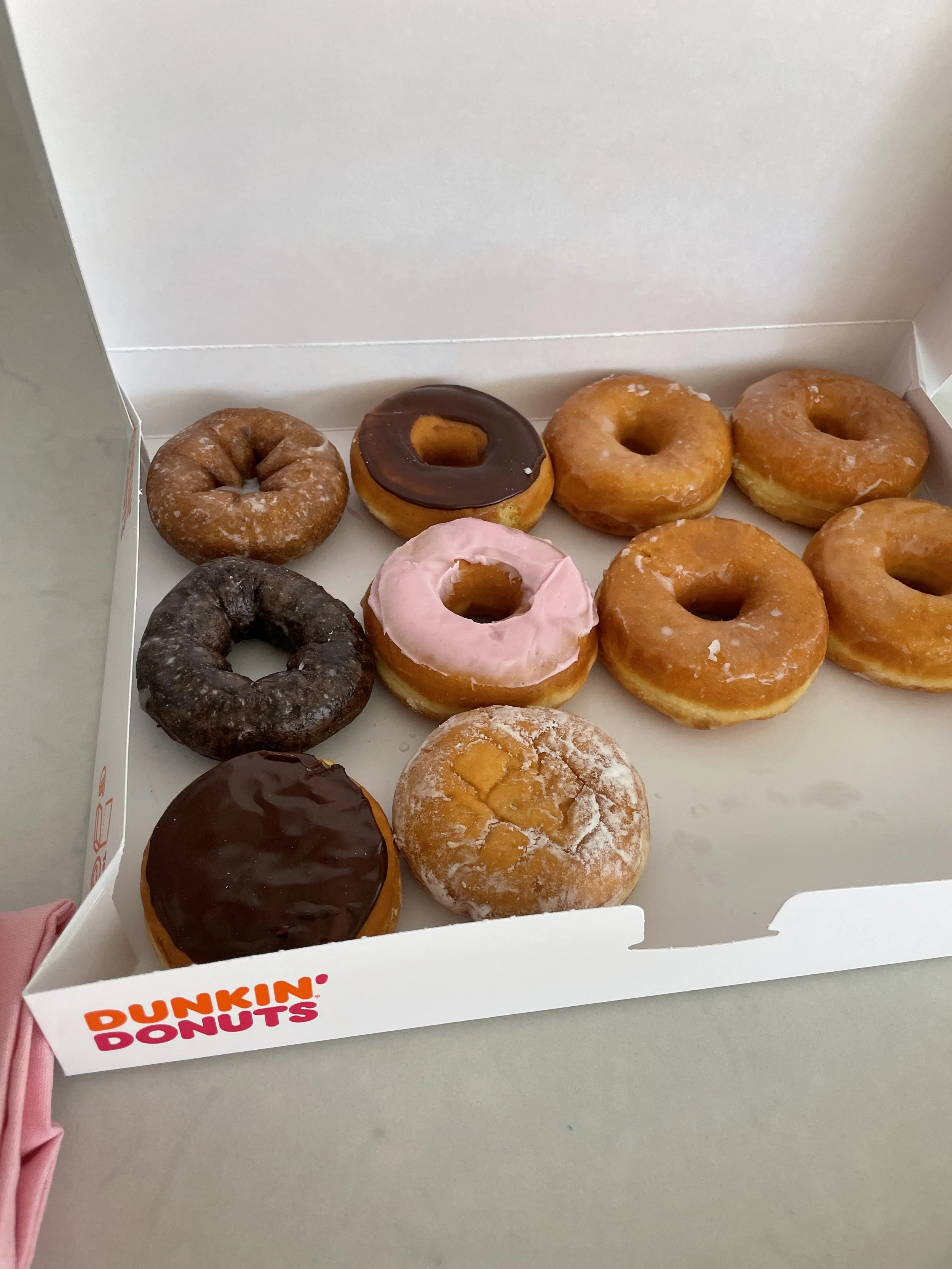3 Tips for Intermittent Fasting
Halloween is coming up and I’m always excited to count how many Halloweens ago that I started intermittent fasting. Yup, of all the days that I started this life style, it was on Halloween of 2018!! I’d be very surprised if I ever go back to any other way of living. It’s about time that I shared some of my insight because the experience that I had when I started intermittent fasting is pretty common.
Disclaimer #1: I am not a dietician, a medical doctor or a weight-loss specialist. But what I am about to share with you has nothing to do with actually losing weight. This post is only sharing my awareness as to why some cannot start and stick with this way of eating and drinking.
Disclaimer #2: I am not going to go over any of the mechanics of how/why intermittent fasting works. There are plenty of books out there that explain this concept. (see below for my favorite books on the subject).
A little background on how it all started for me: My friend Jason introduced me to my first book about intermittent fasting called “The Obesity Code” by Dr. Jason Fung. I listened to this 10+ hour book via Audible. I was not obese but I was frustrated with countless efforts of losing weight and I was curious as to why everyone else around me was getting so puffy and swollen looking. This book is intense and full of data. I wouldn’t recommend it for light reading because it provokes thought; it made me really think for myself. In reading this book, my curiosity and my openness to learn against the grain really got tested. I got mad at the government after I learned that they allowed someone without a nutritional background to have the power to implement the original Nutritional Food Pyramid for the whole country to follow. The book also debunks all sorts of myths about the way our bodies absorb food and how we think about physical exercise. Like I said, the book was intense. My biggest take away from the book is that our bodies produce insulin whenever something tasty hits our tongue. Producing insulin is a natural body function that most diabetics know a thing or two about.
Armed with such technical knowledge from Dr. Fung’s book, I still didn’t know what the heck I wanted to do with the information but I decided to try my first fast (that wasn’t required for any medical procedures). So on Halloween four years ago, I proceeded as usual with dinner and drinking wine as I passed out candy to the trick or treaters. I stopped eating and drinking wine at 8pm. The next day at 8am, I had breakfast. That was a 12 hour fast. It was easy and in fact, I thought about all those years that I forced myself to eat breakfast when I wasn’t hungry because I was brainwashed from the breakfast food lobbyists who claim breakfast is the most important meal of the day. {Important to note that this is true for kids who are still growing and they should never fast. But for adults, unless your career is labor intensive and therefore you need breakfast to sustain yourself - think farmers, then breakfast is not the most important meal of the day). So I gradually started adding an hour to the end of my fast, not eating breakfast until 9am, then 10am etc. Soon, I skipped breakfast and made it to noon and then I would eat big lunches. We’re talking lunches like I had never seen food before.
There was one major thing wrong with this plan. I couldn’t do this every day. There would be days that I was starving and couldn’t focus on anything except food. One day I was talking to a friend about intermittent fasting and she said that Keto and all those other ways to fast didn’t work for her. She found another book. Boy was I ever so happy that my friend sent me a thoughtful pinch by sharing the book! This was a game changer because I learned “next steps”. It’s one thing to know why fasting is good for us but it’s another to learn what to do about it. Gin Stephens’ book , “Delay, Don’t Deny” was so good that when her next book, “Fast. Feast. Repeat” came out, I didn’t hesitate to get it. I have passed both of these books to all the people I love the most because I want them to live as free as I have been for the last four years. I have only been successful in getting two or three family/friends to actually stick with intermittent fasting even though I have passed the books along to at least 25 family and friends. And this is why I am writing this post - because I think I know why their attempts have been harder than mine.
When we try to fast and have a desire to change our lifestyle, these may be things that stand in the way.
We try to do too much.
Even if it is just one of the examples below - it’s one too many. Most try to do all three:
A. Right away we want to go 12-16 hours without eating. Slow down! Fasting is hard to do especially if one of our habits is to snack at night time or we’re used to eating big breakfasts. If we start with an 8 hour fast, it is much better than not fasting at all. Work our way up to a 12 hour fast. It should take weeks to get to that point; there is no rush. More hours fasting in a 24 hour time period doesn’t take off more weight.
B. After fasting for hours, some may additionally cut foods out that they deem as taboo - bread, chips, ice cream, gluten - stuff that all nutritionists say are bad for us. We may feel like since we have fasted we don’t want to eat junk because it may take longer for the weight loss to occur or we may think this is the right time to start eating healthy. Trust me when I say eating healthy will come soon after. For now, just fast and then eat what you want. Bodies will self-correct and once we get used to the feeling of being full, it won’t be long before we know when enough is enough or which foods just don’t sit right anymore. Part of the fun of this style of eating is being able to eat whatever we want. We become foodies which makes life exciting. I will not let my hub intermittent fast because he is the type who eats healthy 24/7 and very rarely eats “forbidden foods”. So fasting in combination with only eating fat-free, calorie-free, gluten-free, tastesless food would be torture. Miserable living. No one could or should sustain that life style.
C. While we are just trying to get used to fasting more than one time a week, some will want to ramp up exercise. We feel like we’re on a roll for living healthy so why not increase our exercise routine? I will tell you why we shouldn’t, it’s too much for our bodies to get used to. Fasting while at the same time using our energy from the feast we just ate is taxing on both our mind and body. Exercising will come later. Going for walks and low-impact fitness are great and encouraged. But adding a 50 mile bike ride when we’re not even used to a 3 mile bike ride will definitely ruin all chances of this working for us.
2. We are unclear as to what counts as fasting.
We think we know what fasting means until we try to avoid putting anything in our mouth and then the rationalization of what we are doing goes out the window.
Here’s where 90% of the problem occurs: Unless we are only drinking plain water - no flavor; not even from a fresh lemon - black coffee or black tea, the fast will be very difficult to do. Remember when I said that the body naturally produces insulin? Other than those three forms of liquid, if we put it in our mouths we will trigger the insulin to secrete. Once insulin secretes, it tells our body that we are eating and it prepares us for the incoming food. Technically drinking lemon water, chicken broth or herbal tea is not fasting because there are ingredients in those items that will cause our bodies to produce insulin. Sure we are not physically chewing food but once the insulin is produced we might as well eat a five course meal because the body doesn’t register how much we’re eating, it just thinks we are eating. In other words, the process of eating has begun once the tongue tastes something other than plain water, black coffee or black tea. Chewing gum all day long is letting the body know we are eating all day long. Folks, I don’t even lick my envelopes (until I am finished fasting) because there is a taste on the envelopes. This is how serious I am about not letting my body taste a thing until I am finished fasting. Again, if we’ve had coffee with a slight bit of Stevia in it, the food processing in the body has begun even though we are not eating. This is why, at the beginning of this life style change, I couldn’t fast every day. I was drinking herbal mint tea or I’d chew gum to keep me from eating. A nibble of a strawberry (which people justify as being healthy) or a lick of a finger after spreading PB on our kid’s sandwich - that is all the tongue needs to start the insulin. We cannot fast if we are hungry. It’s a simple fact. It’s hard to stay focused on anything when we are hungry so if we take a tiny corner off a muffin or add a drop off milk in our coffee, we’re going to be hungry minutes later. Who would want to continue fasting if this happens constantly?
Gin Stephen’s second book, “Fast. Feast. Repeat.” stresses that the key to success is a “clean” fast. She realized people interpreted fasting in so many different ways and I am glad she wrote the follow up book. Even though I had taken her prior book, “Delay, Don’t Deny” very literally and had instant success, it occurred to me that maybe my family and friends should learn about the major difference of fasting and “clean” fasting. I sent them this second book “Fast. Feast. Repeat.” but unfortunately, I think many of them are scarred for life and won’t attempt fasting ever again. Which is really too bad. I would love for my family to live free of asking servers if something is fried or if the entree can come GF or hearing my Filipino relatives avoiding rice because of the carbs. It all makes me want to scream. I witness my family ordering their food at restaurants, asking for no cheese on their burger because they think that it will make a difference, I wish they could just learn how small that effort really is. This is the easiest philosophy to follow because if you can tell time, you can fast. Once we fast and we see the results, we become food snobs and we will self-regulate what we put in our body. There will be no need to fear eating too much fried food because after feasting on it so much at the beginning of this life style experiment, we won’t feel the need to eat it often. We will feel the effects of over-eating and therefore after the first month of indulging, it becomes harder to over-eat. By fasting we won’t feel as if we have been deprived of our favorite food because we will eat what we want when we’re not fasting. If we cannot live without our special order of Starbucks every morning we will soon realize, we can still have it, we just need to wait til we’ve fasted. We’re just delaying we’re not denying. People claim they can’t drink black coffee but caffeine to a caffeine addict is better than nothing. Sit back and watch life long habits naturally alter and evolve. If it’s impossible to take our coffee black but we need caffeine to start our day, then we need to stop eating/drinking at an earlier time at night in order to accommodate this must have in the morning. Oh but we love our wine at night. Ok, we have to pick one or the other. What is our absolute must have? If you’re like me, we can have both but we need to do the math in order to make it happen.
Blessing in disguise. I love this saying and so when I saw the costume, it was a no-brainer for me to copy it for Halloween one year.
My 3 tips for a successful start to Intermittent Fasting are:
Read/listen to “Fast. Feast. Repeat.” which is based on the books “Delay, Don’t Deny” and “The Obesity Code”.
Don’t do too much. Just try one fast - don’t aim for 12 hours, don’t cut your favorite foods out when you finally do eat and don’t exercise your butt off thinking this will help with the fast. None of these will speed up the process.
Know what a “clean” fast is and then pay attention to what you put in your mouth when you’re fasting. If you’re Catholic like me, having the “bread” that they give during mass, counts as eating. Having a breath mint is eating. Drinking our protein powder even though we mix it in water is eating.
I wanted to avoid writing about the entire process of intermittent fasting because there is plenty of existing literature on the subject so there is no need to re-invent the wheel. And those books, blogs, articles list all the benefits of intermittent fasting so there wasn’t a need to list the benefits here. My point of this post was to illustrate why some can keep doing this life style for years while others cannot. I’m not stronger than anyone else. I am not naturally small although people see me eat and think I can eat whatever I want. Technically they are correct but there is a BIG caveat here and that is I fast 16+ hours a day every day in order to eat whatever I want. There have been many occasions when I don’t fast - but divided up, those are maybe a few times per month. I have learned to use intermittent fasting as a tool and it has helped me to have total freedom. I’ve never been happier about my foodie lifestyle and I wish this for all who are looking for that same freedom.
Pinches,
Barb





